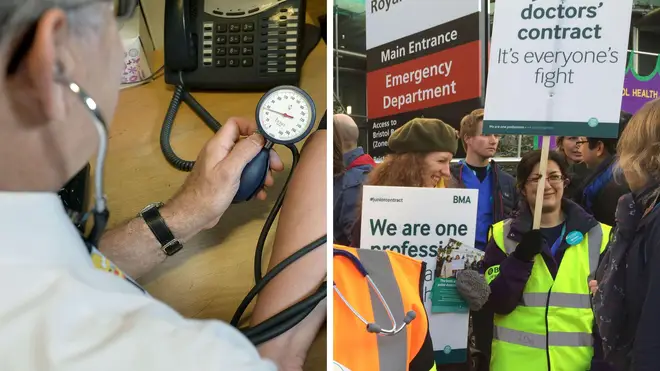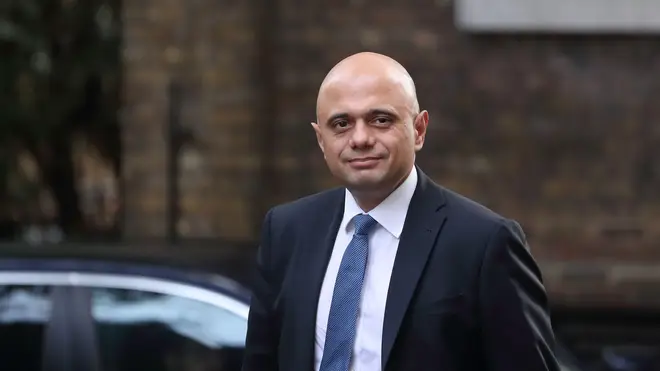
James O'Brien 10am - 1pm
28 June 2022, 12:57 | Updated: 28 June 2022, 14:59

GPs have voted in favour of industrial action over a new contract that would force them to work on weekday evenings and Saturdays.
Doctors, who have demanded a 30 per cent pay rise, took the decision over industrial action during the British Medical Association (BMA’s) annual meeting.
Under the contract, GPs are required to provide full services from 9am to 5pm on Saturdays, from October 1.
Members voted 57 per cent in favour of organising "opposition to the imposition of the new contract including industrial action if necessary". Only 17 per cent voted against industrial action while 26 per cent abstained.
Doctors argued the terms were too inflexible, overly bureaucratic and take power away from GPs to decide how to allocate funding to best serve their communities.
Their calls come on the back of the RMT's rail strikes over pay and conditions disputes and the walkout by barristers over legal aid – while British Airways staff at Heathrow also intend to take action.
The BMA annual meeting in Brighton heard that doctors' pay fell up to 30 per cent against the RPI [a prices index] since 2008. One consultant said she was "struggling to survive" as a single parent.
"The new contracts have already effectively been imposed. But that doesn't mean that GPs are powerless to act. I know some of you will be worried about industrial action. But how much more can we take?" GP Dr Jacqueline Applebee, who proposed the motion, said.
She told the conference that the medics' union should follow rail unions - paying tribute to RMT chief Mick Lynch - in embracing industrial action.

Read more: Barristers walk out of courts in strike over pay with over 1,000 cases affected each day
Delegates at the conference mandated the BMA to "achieve pay restoration to 2008 value for its members within the next five years".
"Pay restoration is the right, just and moral thing to do, but it is a significant demand and it won't be easy to win," said Dr Emma Runswick, who presented the motion to the conference.
"Every part of the BMA needs to plan for how to achieve this. But I'm not foolish, I know that it's likely that industrial action will be required to move the governments on this issue."
She added: "It is outrageous that our pay has been cut by 30 per cent.
"It is outrageous that doctors today are unable to afford mortgages and are delaying starting families due to falling pay.
"It is outrageous that our pay has been cut and it is sensible that we demand it back."
Reports have suggested NHS and teaching staff have also grown restless – and combined with striking workers at Heathrow, fears of a summer of discontent are growing.
Boris Johnson's government tried to shift the blame for the industrial action during the rail strikes on to Labour, trying to tie the party to the disruption, while Labour blamed the Government for allowing problems to reach the point where workers are walking out.

Minister says doctors do not deserve 30% pay rise
Read more: Police swoop to seize Stop Brexit Man’s speaker under new law banning ’noisy protests’
Chris Philp, minister for technology and the digital economy, told LBC this morning that doctors do not deserve an "enormous" 30 per cent pay rise as it would "drive inflation even higher".
He told LBC's Nick Ferrari at Breakfast that if everybody asked for a pay hike tomorrow it would "feed through into higher prices".
"Companies will have to put their prices up, in the case of the NHS we'll have to put taxes up to fund it, and the excess money will just drive prices up even further," he said.
"If we have these across the board pay increases that some people are calling for it will just make the current inflation challenges - which I am hoping and expecting are temporary - it'll make them worse.
"It will drive inflation even higher, and it will make inflation permanent as we saw during the 1970s when the wages chased up inflation - it became circular like a dog chasing its tail.
"So, I don't think that's the right response to the inflation challenges that we face and that applies across the entire economy."